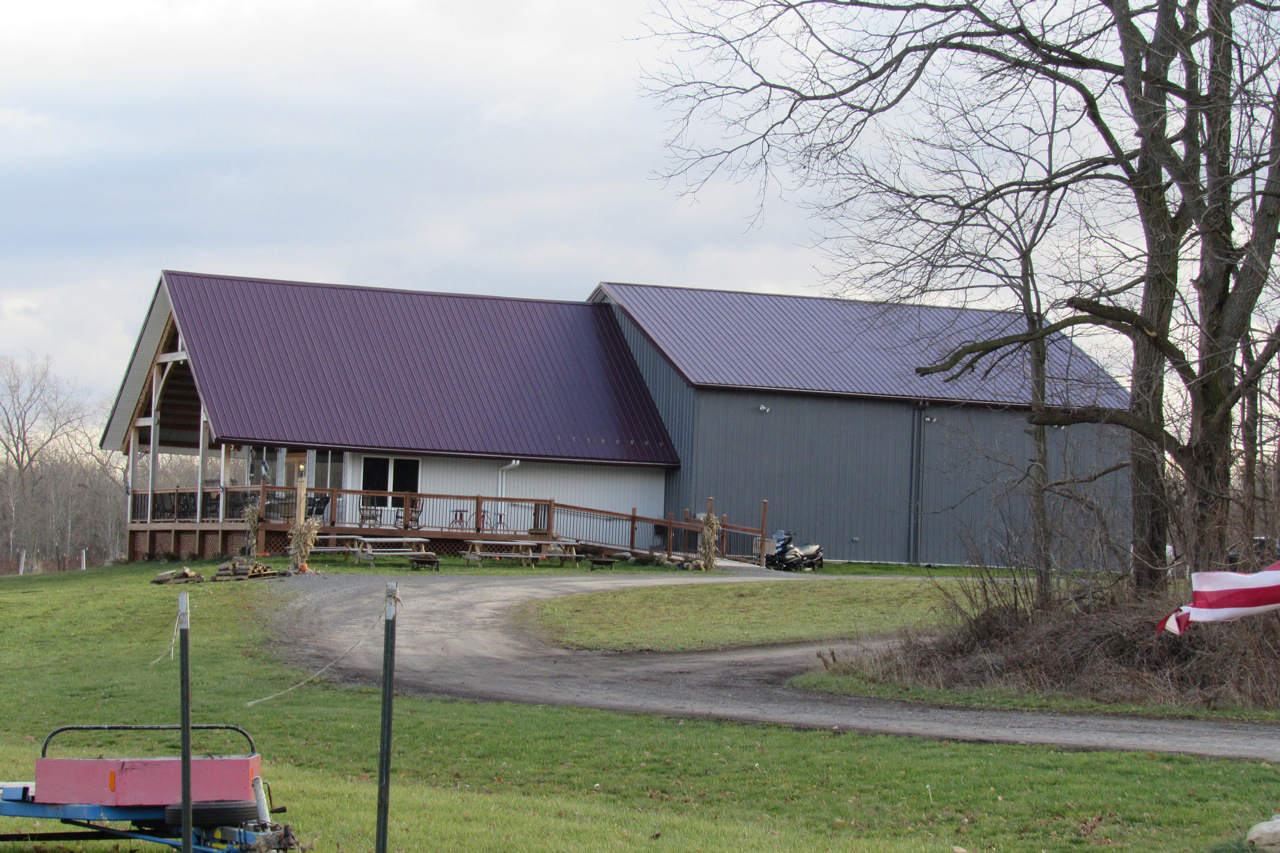Sweden residents speak out on proposed local law amendments affecting agriculture

Sweden Supervisor Rob Carges said the town board has no intention of throwing out proposed amendments to local laws covering special events in the town, and which define specific terms regarding agriculture such as “farm,” “farming,” “farm operation,” “brewery,” “cidery” and “distillery.”
“The board will revisit the issue and look at things we can amend ourselves,” Supervisor Carges told the Suburban News/Hamlin-Clarkson Herald following public hearings held December 6 on the proposed amendments.
The public hearings were very well attended, but Supervisor Carges observed many of those who spoke had been misled by information garnered via social media.
“It was never our intent to pick on farms or a winery in particular,” he explained. He said town board members heard repeatedly during the hearing that the proposed amendments would kill business in the town and hurt farmers and business. Supervisor Carges said those claims are unfounded.
“All we want to do is amend laws already on the books to bring them to 21st century norms,” he said, and noted the current law has become dated.
The law governs businesses in the town, Supervisor Carges said, but complications occur because farms are businesses located in residential areas. “All towns are struggling with the issue,” he said, and explained the town does not want to discourage agriculture. He has been in contact with the NYS Department of Agriculture and Markets over the issue and recently received from them a copy of a similar law on Long Island that has been in place for over a year.
“We’re trying to stay ahead of the issue,” Carges said. If something happened during an event at a local business or farm that resulted in litigation, the town would likely be sued, he said, and the amendments would help to address that.
He also responded to criticism that complaints over events at a winery have come from only one resident, saying we, “can’t brush (even one) person off.”
Supervisor Carges said the topic will likely be part of a town board workshop session in late January.
Five Sons Winery and RG Brewery on West Sweden Road has been at the center of the issue and Aimee Mesiti, who runs the business with her husband, Adam, said she is encouraged and humbled by the amount of support shown by community members to Five Sons and other farms during the December 6 public hearings.
“We are fighting back,” she said, against the “chronic complaining” of a single resident. “Enough is enough, we will keep fighting until this is stopped.”
The meeting drew residents and those in agribusiness from surrounding communities and Mesiti said if the changes are eventually made law, it could have a ripple effect on other growers. “It’s unfortunate that the town seems to think they need to regulate something that is already regulated,” she observed.
Mesiti explained that farms, agribusinesses, wineries, etc. are already regulated by the State Department of Ag & Markets, and the State Liquor Authority also has very strict regulations. “It doesn’t make any sense. It doesn’t protect the town, it doesn’t protect anyone,” she said of the changes. “It’s only protecting the desires of a single individual.”
Mesiti said her hope was that the town would drop the issue, but she and her family will be watching closely as the town moves forward. “We would like to have a voice, which we have not had up until this date,” Mesiti said. “We will see what happens.”
Paul McCracken at McCracken Farms on White Road, called the proposed changes, “overwhelmingly unpopular,” with residents who spoke during the hearings.
“It’s not just about one farm or one winery,” he said. “Farmers have a right to sell their produce in an agricultural district.” He called definitions in the proposed amendments “insane” and said if the changes become law it could lead to litigation against the town. “It could be a long, drawn-out court battle that would suck a lot of money from the town,” McCracken said.
He said the town already has items such as detailed site maps, and he already has to go through the costly process of obtaining permits from the Monroe County Health Department prior to events that involve serving food to the public.
“This year it cost me $350 to sell hot dogs at the pumpkin patch,” McCracken said of county-level permits. To add $150 to that on the town level would create an even larger financial burden – “That’s a lot of hot dogs,” he noted.
McCracken said the town could check with the county or the State Liquor Authority to see if permits are in place prior to special events.
He said the town board should be approaching any changes from the farmer’s perspective and how things can be made easier instead of more difficult for farmers to market directly to the consumer and keep their family farms going.
“Do we need to regulate non-agriculture events with a six-page application? No … the clerk and the town board should be streamlining the process to make it easier, not pile up more barriers,” McCracken said.




